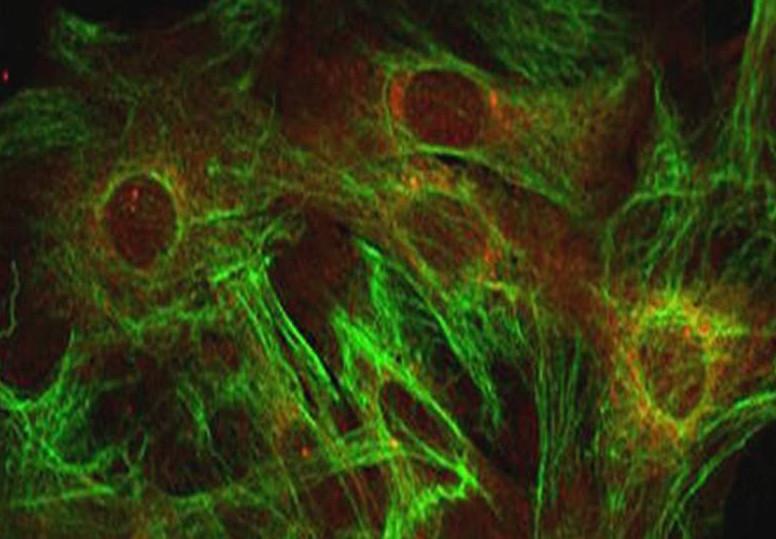Neurological researchers at Georgetown will be part of a new National Institutes of Health (NIH)-funded national clinical research consortium, the Georgetown University Medical Center announced on Nov. 3.
The consortium, Access for All in ALS (ALL ALS), is co-led by researchers at the Barrow Neurological Institute, Massachusetts General Hospital and Columbia University. NIH’s goal is to sponsor a collaborative effort in the collection of biological and clinical data to help guide researchers towards a greater understanding of the disease as well as potential therapies.
The Medical Center announced in a news release to the Georgetown community that Brent Harris, director of neuropathology and the Georgetown Brain Bank, will serve as Georgetown’s principal investigator and lead neuropathologist in the consortium for the ALS research.
Amyotrophic lateral sclerosis (ALS), also known as Lou Gehrig’s disease, is a condition that involves nerve cell death and leads to an inability to trigger specific muscles. These muscles become weak due to underuse, causing paralysis.
“ALS is a remarkably challenging disease, so approaching it from every available angle is necessary. Georgetown is pleased to contribute to this very important national effort,” Harris said in the news release.
Harris said several months ago the NIH informed the medical center that they had funds available to start a new national coordinating center to reach all ALS patients.
“We learned about it in July, and the grant was due in August, and it started in September. So, we and seven other groups around the country pulled their teams together because this was a large multimillion dollar effort; not one site could do it,” Harris told The Hoya.

The CDC estimates that around 31,000 people in the United States are living with ALS, with about 5,000 patients being diagnosed every year. Harris said the significant lack of understanding of the disease prompted the creation of this initiative.
“There’s been lots of research going on about the disease. So we know lots about it, but we don’t know enough yet to have really effective drugs. We need to be able to understand the wide breadth of people with this disease because sometimes it’s genetic, sometimes we don’t know the genes. Sometimes it could be potentially environmental,” Harris said.
ALL ALS was created for the purpose of understanding a variety of people across the nation with the disease, according to Harris.
“There are going to be 34 sites in total, and those are going to be distributed throughout the country. The idea is we want to be able to reach ALS patients in rural areas as well as cities. So having a distributed network allows us to better do that,” Harris said.
Carlo Tornatore, professor and chair of the department of neurology, said he is excited about Georgetown’s involvement in the project and the impact it could have on those living with ALS.
“As an academic health system, MedStar Health and Georgetown University have an established track record of conducting the most advanced clinical studies in neurologic diseases,” Tornatore said in the press release. “We look forward to continuing our work with ALS families in the mid-Atlantic region as we help them along in this difficult journey.”
Harris said using the genomic, clinical, biomarker and imaging data that the group will collect could increase the chance of stopping the disease before it starts in patients, which would be a massive improvement from the current treatments of ALS.
“We can follow those people and hopefully understand what the starting point of the disease is,” Harris said. “We think that in neurodegenerative diseases, if you can understand the very early stages and intervene at that stage, you may have a better chance of stopping it cold before it really gets going.”
Harris said the disease may impact someone’s physical wellbeing in ways that prevent access to medical care. This prevents the clinicians and researchers from helping them. Moreover, Harris added that collecting valuable information from these patients can be difficult.
“As the disease progresses, they become more and more debilitated. They often are wheelchair bound, and transportation is difficult,” Harris said. “So we’re gonna have to think about ways of either getting people to those 34 centers or going to them remotely and setting up a network of clinicians that can go out to people in the home.”
People across the country and around the world often see reports in the news of a new drug or therapy that shows substantial promise in treating ALS. When asked about the hope of ALS patients and their loved ones that a new treatment will come soon, Harris said he fixates on the importance of hope.
“Hope is a good word,” Harris said. “I think that having been in the field for almost 30 years and seeing the strides that have been made in understanding the very first genes that were associated with ALS, and going to meetings where I see the amazing science, and dedication that people have, scientists, families of people with ALS, and the patients themselves who have ALS, I’m extremely hopeful.”








